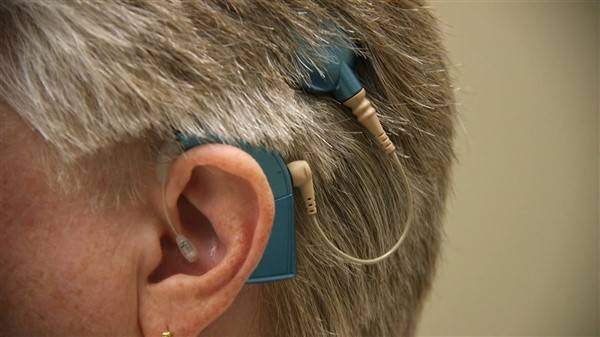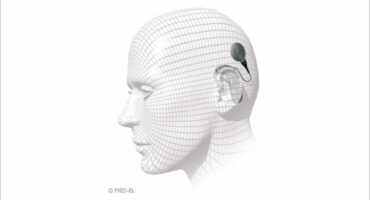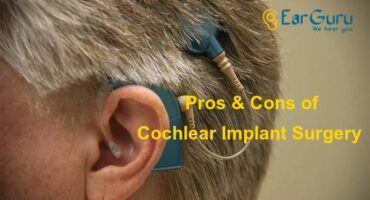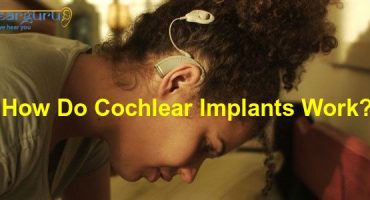Every person with a Hearing loss has faced this issue at some time. Which is better for them, a Cochlear Implant or Hearing Aids? People who are aware of the latest developments in the field of hearing loss want the best solution for their Hearing problem.
The ENT Doctor and the audiologist are the best persons to answer this query. The choice of hearing device is primarily based on medical reports and the auditory response of the patient. The doctor and audiologist evaluate the report and decide on the Cochlear Implant candidacy or suitability. A major factor in the decision is the type of hearing loss affecting the patient.
Table of Contents
- What is the Basic Difference between a Cochlear Implant and a Hearing Aid?
- Factors to Decide Candidacy for Cochlear Implant
- Is Cochlear Implantation in Older Adults Advisable?
- Is a Cochlear Implant Advisable for Children?
- Who Should Use a Hearing Aid?
Cochlear Implant Or Hearing Aids
Both the Hearing devices help the user to hear better. It is advisable that the reader understands the basic differences between a cochlear implant and a hearing aid.
How Do Cochlear Implants Work?
A cochlear implant picks up the sound through an external microphone. The sound processor converts these sound waves into electrical pulses or signals. These signals reach the inner ear or the cochlea. Read our blog explaining How Do Cochlear Implants Work? to understand the process.
How Does A Hearing Aid Work?
The hearing aid also has an external microphone which picks up the sound. The microphone passes the sound signal to the digital processor and amplifier. The settings on the Hearing aid control the amplification of sound.
This sound reaches the users outer ear. The settings ensure that the amplification is as per the users hearing loss. For more details, read our blog on what to expect at your first hearing aids fitting.
What is the Basic Difference between a Cochlear Implant and a Hearing Aid?
The brief description above conveys the different method and technology used in both the Hearing Devices.
The processor in the cochlear implant converts the sound waves into electrical signals. These signals directly reach the Inner Ear through wires and Implant electrodes. The sound signals bypass the outer ear and the middle ear.
Whereas, a hearing aid amplifies the sound signals and delivers them to the outer ear.
It is clear from the above that we cannot replace one device with the other. Each hearing device has its distinct use and purpose.
To summarise the above. A cochlear implant suits the user if there is a damage or abnormality in the outer ear or the middle ear. The abnormality does not allow the sound to reach the inner ear. Hence the need for the sound signal to directly reach the inner ear.
Factors to Decide Candidacy for Cochlear Implant
The following are the criteria for getting a cochlear implant.
Type of Hearing Loss
A hearing aid may not help if the person is suffering from a profound sensorineural hearing loss. In case of Sensorineural Hearing Loss, the tiny hair cells in the cochlea are damaged or missing. Hence amplification by the hearing aid does not help. The hair cells are unable to convert them into electrical signals.
Speech is Not Clear with a Hearing Aid
Some people might not have a profound hearing loss. Ideally, in this case, a hearing aid should help. Due to poor understanding of speech, a hearing aid is of little use. Hence the need for a cochlear implant.
Age at which the Patient has become Deaf
The doctor and the audiologist will also consider this criterion. The sound signals received through the cochlear implant are not as clear as those received through the hearing aid.
The patient has to undergo speech therapy to get used to the new sound. The process is much easier if the patient is familiar with the speech before becoming deaf. The speech therapist has to start from the basics if the patient has never heard speech before.
Support System of the Patient
Cochlear Implant is not a “done it forget it” device. Persons using implants have to undergo post-operative Speech Therapy. It is important to have a Speech Therapist close by. At times there is a need for more than 1 therapy session per week.
Post-Operative Expenses
Accessories like connecting cords and batteries need replacement at regular intervals. cochlear implant accessories are more expensive than accessories of a hearing aid.
The patient or the family should be aware of the regular expenses. One should consider the cost of Speech Therapy sessions as well.
Is Cochlear Implantation in Older Adults Advisable?

There is no age restriction for the person wanting to benefit from a cochlear implant. The factors to keep in mind are:
- The older adult is suffering from moderate to profound hearing loss in both ears.
- There is no clear benefit from the use of hearing aids.
- The patient is mentally and physically strong to undergo the operation.
- Should take care of the cochlear implant in the future.
Is a Cochlear Implant Advisable for Children?

Doctors are operating children as young as 3 months old. Evie Smith from the United Kingdom and Kadence Lane from Mississippi were both around 3 months old when they received the cochlear implant.
Children who receive the cochlear implant early pick up language and speech much faster. They also have a higher chance of joining the normal school.
Who Should Use a Hearing Aid?
- If a person has some residual hearing and can follow a conversation. The first choice should be a hearing aid.
- Hearing aids are easier to handle. In the case of elderly patients, hearing aids are advisable.
- Hearing aids are easier and economical to maintain.
- Elderly patients who are not in favour of surgery should opt for hearing aids. Read about the Pros and Cons of Cochlear Implant surgery.
Both the hearing devices have their distinct advantages. Hold a detailed discussion involving the doctor, audiologist and the family. It’s an important decision, a doctor cannot reverse a cochlear implant surgery.
One must not shy away from using external aids. These aids are important for growth in young people and a healthy family and social life in the case of elders.
Read our blog on Cochlear Implant FAQs – All You Need to Know for all your queries on the topic of Cochlear Implants.
Reference:
About the Author




